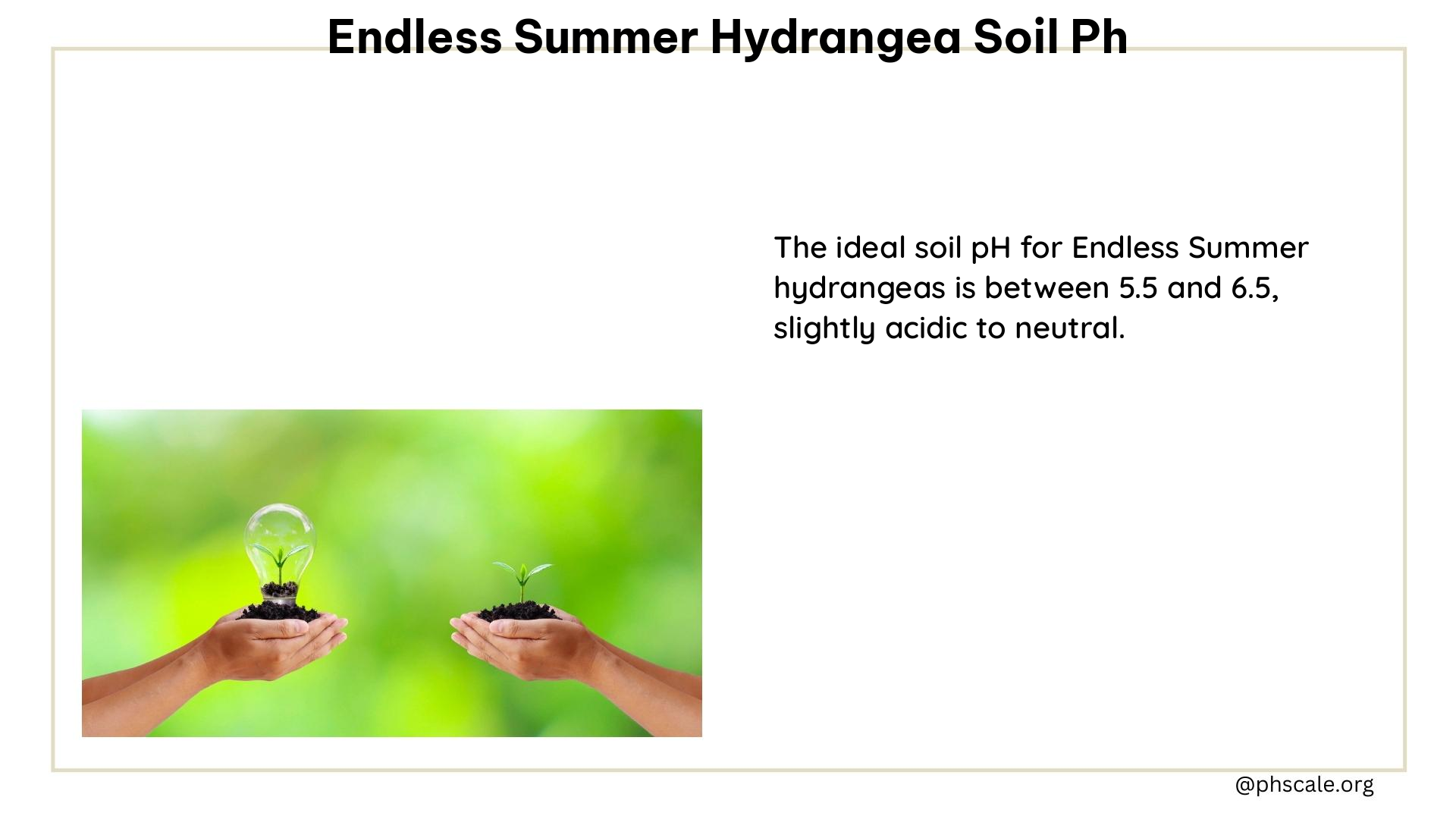The ideal soil pH for Endless Summer hydrangeas to produce vibrant blue flowers is between 5.2 and 5.5. This acidic range allows the plant to absorb the necessary aluminum, which is crucial for achieving those stunning blue blooms. If the soil pH rises above 6.0, the flowers will transition to a beautiful pink hue. Understanding and managing the soil pH is the key to unlocking the full potential of your Endless Summer hydrangeas.
Adjusting Soil pH for Desired Flower Color
To ensure your Endless Summer hydrangeas display the desired flower color, you can make adjustments to the soil pH using the following methods:
Acidic Soil (Blue Flowers)
-
Soil Sulfur: Apply Soil Sulfur at a rate of 1 to 2 pounds per 100 square feet (approximately ¼ to ½ cup per plant). This method is slow-acting and may take 3 to 4 months to have a noticeable effect.
-
Copperas (Ferrous Sulfate): Use Copperas at a rate of 2 cups for every 2 feet of plant height. This method is faster-acting, with results visible in 3 to 4 weeks, but requires more chemical application. Exercise caution when using Copperas, as it can leave rusty stains on surfaces and clothing.
Alkaline Soil (Pink Flowers)
- Wood Ashes, Lime, or High-Phosphorus Fertilizers: Add these amendments to the soil to prevent aluminum from entering the plant’s system, which will result in pink flowers.
It’s essential to perform a comprehensive soil test to determine the current pH, salinity (EC), and nutrient levels. Maintaining the ideal soil pH between 5.2 and 5.5 is crucial, as over-acidification can lead to root burn and prevent blooming.
Ideal Soil Type for Endless Summer Hydrangeas

The best type of soil for Endless Summer hydrangeas is loam soil, which provides a balanced mix of humus, sand, and clay. This soil type offers the necessary nutrients and drainage for the plant to thrive.
Contaminants and Chemicals to Avoid
-
Aluminum Sulfate: While it can lower soil pH, regular use of aluminum sulfate can build up and become toxic to plant roots.
-
Excess Fertilizers: Overfertilization can lead to root burn, manifesting as brown edges or tips on the leaves.
Helpful Tips and Home Remedies
-
Compost: Add composted oak leaves, pine needles, or coffee grounds to encourage blue blooms in alkaline soils.
-
Mulch: Use organic mulch like wood chips, bark, or cocoa bean mulch to conserve moisture and restrict weed growth.
-
Pruning: Prune minimally in the spring to avoid removing potential blooms.
By understanding the importance of soil pH and implementing the appropriate adjustments, you can unlock the true potential of your Endless Summer hydrangeas, ensuring vibrant and long-lasting blooms that will captivate your garden.
